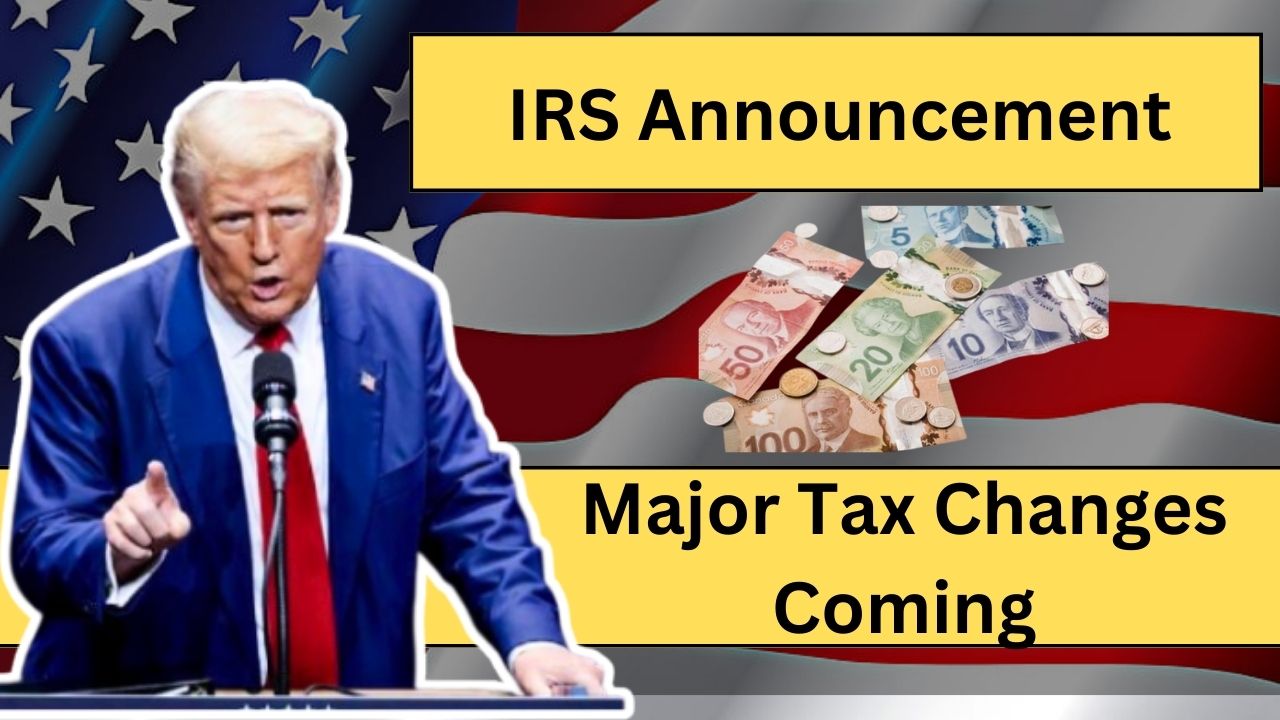The IRS has announced crucial updates to the tax system that will come into effect starting January 1, 2025. These changes aim to simplify tax codes, streamline benefit programs, and help American citizens, especially those struggling with inflation, access benefits more easily. Below is an in-depth look at the changes and their impact.
Key Highlights of the IRS Announcement
- Effective Date: Changes start on January 1, 2025.
- Purpose: To ease financial burdens through monthly or one-time payment benefits.
- Target Group: Low-income and financially unstable citizens, including those reliant on government programs.
- New Tax Filing Tools: Expansion of the Direct File program for easier online tax filing.
IRS Tax Changes: A Detailed Overview
The IRS processes over 128 million individual tax returns annually. The upcoming updates aim to:
- Enhance taxpayer convenience by enabling smoother tax filing and benefit distribution.
- Maintain fiscal balance to ensure sustainable fund distribution for future use.
Changes in Standard Deductions for 2025
- Single Taxpayers & Married Individuals Filing Separately:
- New deduction: $15,000 (an increase of $400 from 2024).
- Married Couples Filing Jointly:
- New deduction: $30,000 (an increase of $800 from 2024).
- Heads of Household:
- New deduction: $22,500 (an increase of $600 from 2024).
Alternative Minimum Tax (AMT) Updates
- Unmarried Individuals:
- AMT exemption: $88,100.
- Phase-out begins at: $626,350.
- Married Individuals Filing Separately:
- AMT exemption: $68,650.
- Married Couples Filing Jointly:
- AMT exemption: $137,000.
- Phase-out begins at: $1,252,700.
For a complete list of updates, visit the IRS Official Website.
Direct File Program Expansion
The Direct File pilot program is transforming how Americans file taxes, offering a free, convenient option to pay taxes online.
2024 Availability
- Accessible to residents in 12 states:
Arizona, California, Florida, Massachusetts, Nevada, New Hampshire, New York, South Dakota, Tennessee, Texas, Washington, Wyoming. - Eligibility: Residents who lived and worked in these states throughout 2023.
2025 Expansion
- Adding 12 more states, bringing the total to 24:
Alaska, Connecticut, Idaho, Kansas, Maine, Maryland, New Jersey, New Mexico, North Carolina, Oregon, Pennsylvania, Wisconsin. - Eligibility: Residents who lived and worked in these states throughout 2024.
Program Impact
- In 2024, over 140,000 taxpayers used Direct File for hassle-free tax submissions.
- By 2025, participation is expected to double, providing broader access to free tax filing tools.
IRS Commissioner’s Statement
Danny Werfel, IRS Commissioner, emphasized the agency’s commitment to improving the tax filing experience for Americans:
- Vision: Simplify the process for taxpayers to fulfill their obligations efficiently.
- Goals for 2025 and Beyond:
- Expand Direct File services to more states.
- Introduce advanced functionalities for inclusivity and accessibility.
Frequently Asked Questions (FAQs)
1. When will the IRS changes start?
The changes will be implemented after January 1, 2025.
2. How will citizens know about these changes?
Updates and notifications will be available on the IRS Official Website.
3. What is the Direct File pilot program?
It’s a free online program designed to make tax filing simpler and more accessible.
Conclusion
The IRS’s upcoming tax changes and expanded Direct File program signify a transformative step toward improving financial stability for millions of Americans. By preparing early and staying informed, taxpayers can take full advantage of these updates to ensure a smoother and more efficient tax season in 2025.
I Work as a Content Writer and I like Writing Articles




